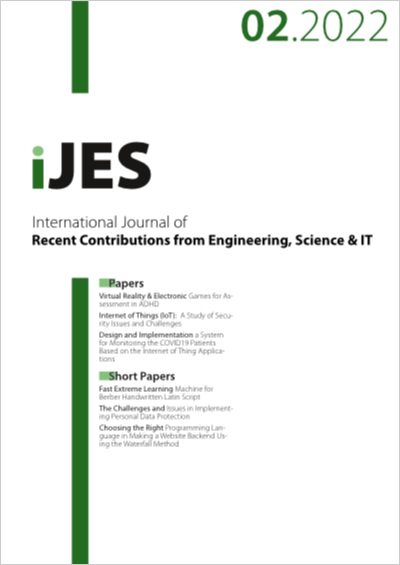Virtual Reality & Electronic Games for Assessment in ADHD
DOI:
https://doi.org/10.3991/ijes.v10i02.29735Keywords:
Attention, Deficit Hyperactivity Disorder (ADHD), Assessment, ICTs, Metacognition, Serious Games, Virtual Reality, BCIAbstract
In the last few years, several computerized tasks have been developed to increase the objectivity of the diagnosis of attention-deficit hyperactivity disorder (ADHD). Usually, its diagnosis is based on the judgment of health professionals using a clinical history that often consists of assessment scales completed by caregivers and/or teachers. Many experts have criticized this way of diagnosing ADHD, as it tends to be subjective by both doctors and caregivers. Many researchers argue that using original digital diagnostic tools in the form of games for children with ADHD may provide much clearer diagnostic clues. A game can be enjoyed much more by children, as it stimulates creativity, sets specific goals to be completed, provides a feedback mechanism that fosters motivation, and offers measurable results. The present work investigates the use and effectiveness of electronic games, either in virtual reality environments or not, for the detection of the symptoms of ADHD.
Downloads
Published
How to Cite
Issue
Section
License
Copyright (c) 2022 Aikaterini Doulou, Athanasios Drigas

This work is licensed under a Creative Commons Attribution 4.0 International License.
The submitting author warrants that the submission is original and that she/he is the author of the submission together with the named co-authors; to the extend the submission incorporates text passages, figures, data or other material from the work of others, the submitting author has obtained any necessary permission.
Articles in this journal are published under the Creative Commons Attribution Licence (CC-BY What does this mean?). This is to get more legal certainty about what readers can do with published articles, and thus a wider dissemination and archiving, which in turn makes publishing with this journal more valuable for you, the authors.
By submitting an article the author grants to this journal the non-exclusive right to publish it. The author retains the copyright and the publishing rights for his article without any restrictions.
This journal has been awarded the SPARC Europe Seal for Open Access Journals (What's this?)


